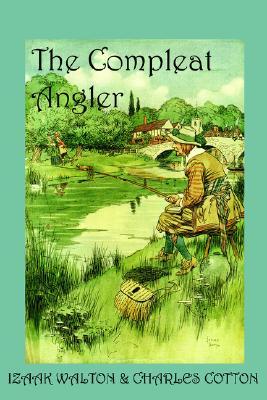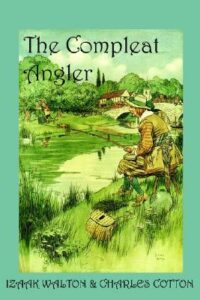Chapter II — The Compleat Angler
byChapter II – The Compleat Angler opens at daybreak, when Venator meets Piscator for an eagerly anticipated outing in nature. Rather than a simple fishing expedition, their day begins with a more urgent task—the pursuit of an otter known for raiding local fish. The rising sun casts long shadows across the meadow as men and dogs rush forward, already deep in the chase. Their excitement mirrors the tension of the unfolding scene. Piscator joins with spirited energy, thrilled by the rare opportunity to participate in an otter hunt. It is clear that his love for sport is deeply tied to the rhythm of the wild, where man, beast, and nature interact in unpredictable ways. The morning becomes more than recreation—it becomes a glimpse into the balance of survival between creatures, a dance where instinct meets strategy.
As they follow the hounds, the party encounters a seasoned huntsman who offers valuable insight. He reports that the otter has already been spotted downstream, having feasted on a large trout. Piscator is struck by the animal’s appetite and cunning, characteristics that have long made otters a threat to local fish populations. The discussion takes a playful turn when the question arises: is the otter a beast or a fish? Its amphibious lifestyle blurs that boundary, provoking thoughtful and humorous debate. The huntsman dodges a firm answer, but his expertise becomes evident as he explains how otters rely heavily on their acute sense of smell to locate prey. Their presence near a waterway often signals imminent loss for fishermen. As useful as their pelts may be for waterproof garments, their impact on the ecosystem remains disruptive. Yet this moment of wit and natural curiosity adds charm and depth to the chase.
The dialogue continues as the men share techniques to protect waters from otters, including the use of potent herbs like Benione to mask the scent of fish. This exchange of practical knowledge is a hallmark of angling culture, where experience is passed down through stories. The conversation is suddenly interrupted by the sounds of the hunt intensifying along the riverbank. Dogs bark in pursuit, and the otter is spotted trying to escape by plunging into the water’s deeper stretch. Sweetlips, the lead hound, is first to react, diving with precision. The hunters rush to reposition, coordinating from both riverbanks. Tension builds as the otter uses every trick to outmaneuver the pack—darting beneath roots, doubling back, even momentarily vanishing. The sequence feels almost theatrical, yet it captures the real stakes of this age-old conflict between predator and prey. These animals, though admired for their agility, are hunted for survival and balance.
Eventually, the pursuit ends with the capture of the otter, a moment both triumphant and sobering. It is revealed to be a female that recently gave birth, a discovery that softens the celebration. With instinctive concern, the hunters begin searching for the pups, understanding that they, too, must be accounted for. The weight of this moment adds complexity to the day’s success. While the otter posed a real threat to the river’s fish, her death highlights the fragility of life in the wild. Such moments illustrate the double-edged nature of hunting—where skill and victory are accompanied by consequences. Piscator doesn’t ignore this. His silence shows his awareness that respect for nature requires recognizing both its beauty and its harshness. The camaraderie among the men is quieted for a while, touched by reflection.
Yet, the chapter does not leave readers in sorrow. It blends this somber moment with a return to philosophical talk, which has been a steady thread in their journey. Piscator and Venator use these pauses to exchange thoughts, not just on angling, but on behavior, morality, and shared values. Their companionship, built on honesty and common pursuit, reflects the deeper themes of the book. Angling is more than the act of catching fish—it’s about how one behaves while doing so. Whether in sport, conversation, or contemplation, the day’s experiences become lessons. By observing the hunt, listening to the huntsman, and participating in the ethical dilemmas it presents, Venator matures as an outdoorsman. He learns that being a good angler means being a thoughtful human being.
The richness of this chapter lies in its fusion of action, ethics, and storytelling. It paints a portrait of 17th-century country life that goes beyond technique. What resonates most is how nature is not seen as something to dominate, but as a partner in understanding life’s rhythm. Readers today can still take something from that view. Whether they fish or not, they can appreciate how patience, awareness, and moral responsibility weave into even the smallest activities. This makes The Compleat Angler a lasting guide—not just to angling, but to living well in the world around us.


